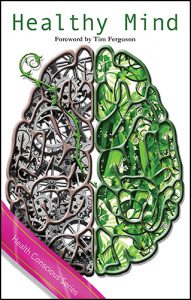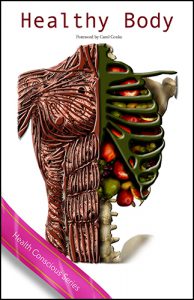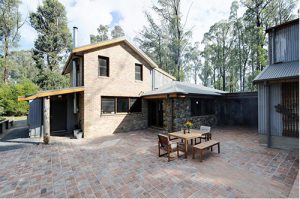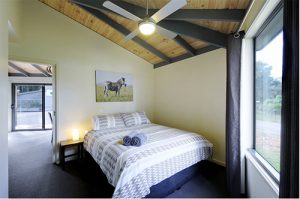

Month: May 2016
Welcome to the Busybird blog, where you can find helpful articles, updates, industry news and more. Make sure you stay up to date by signing up to our newsletter below.
Learning Your Craft
May 26, 2016 Stimulus is important in a writer’s development. You need to be constantly exposed to new information to evolve. Obvious avenues are residencies, workshops, and schooling. Here, you should be flooded with new information that challenges what you know and compels you to grow. Experience is another great teacher. As writers, you’re writing about things that happen in life. Even if you’re writing something fantastical, you’re still dealing with life – just in a different setting. So, as writers, you should be constantly searching.
Stimulus is important in a writer’s development. You need to be constantly exposed to new information to evolve. Obvious avenues are residencies, workshops, and schooling. Here, you should be flooded with new information that challenges what you know and compels you to grow. Experience is another great teacher. As writers, you’re writing about things that happen in life. Even if you’re writing something fantastical, you’re still dealing with life – just in a different setting. So, as writers, you should be constantly searching.
Books on writing are another invaluable resource, although some might break the craft of writing too precisely into a science. But they brim with information. And that’s what you thrive on. You don’t have to apply everything you learn – ultimately, you find your own way, your own voice, your own style. If there was one way of writing, reading would be boring. Instead, you are all unique, e.g. Cormac McCarthy relies on sparse description, whilst Inga Simpson’s writing is rich in detail. You all have your own way of doing things.
And you can only learn your own way by doing. This means sitting down and writing. Nobody is going to write a masterpiece first-up. Your first or second or even twentieth or thirtieth story mightn’t work because, for all the information you digest, you still have to apply it to learn how it’s executed, and how it’s executed through the filter of your own style. So you have to write.
Instead of being fearful you’re going to get it wrong, that things won’t turn out, that it might be an unmitigated disaster, you still need to do it, because it’s part of your development. You might think it’s a waste of time to write a story that’s filled with plot-holes, where the motivations are shallow, and the characters are one-dimensional, but it’s not (a waste of time) because through the act of writing, you learn that the story’s filled with plot-holes, the motivations are shallow, and the characters are one-dimensional. Next time, you’ll be conscious of addressing that. Again, it’s a learning experience. You cannot succeed without failing. That doesn’t just apply to writing, but everything in life.
Still, you might feel trepidation. You might be unsure of your abilities, and – for the moment – be unable to participate in workshops or schooling. You mightn’t be able to go away on a big holiday and enjoy a whole new assortment of experiences. You might just be living a normal everyday life. So what do you do?
Read.
Reading is one of the best teachers you can find. Writers who aren’t readers are neither bright nor respectful – not respectful because if you’re not reading other authors’ books, why should anybody read yours? As for not being bright, it’s reading that teaches us about structure, plot, characterisation, voice, grammar, punctuation, and more – all the components that constitute a book. You can learn through osmosis, or make a concerted effort to examine why a book works (for you) and, in doing that, you can begin to understand the parameters that must frame your own stories.
Even movies and television series can teach us these lessons, because they’re still about stories – whilst there’s profound differences in the requirements between writing prose and screenwriting, there’s also similarities because you’re still storytelling. You still need structure, you still need plot, you still need characterisation. So, outside of reading, you should watch movies, watch television series, and ask yourself how and why the stories work or don’t work for you, how you’d address the issues, and how you’d do it yourself.
Then take that information and apply it to your own writing.
And write.
The Great Novella 2016 Shortlist
May 16, 2016![]() Thank you to everybody who entered Busybird’s Great Novella Search 2016.
Thank you to everybody who entered Busybird’s Great Novella Search 2016.
There were so many great entries – so many great novellas and short story collections. Whittling down the entries to a shortlist was near impossible.
But here we go …
Danae Bosler (Vic) – ‘Bellwether’
Danae Bosler is a writer and campaigner based in Melbourne. She has been published in Overland, National Times, The Guardian Online and The Conversation. She has a Masters in Creative Writing, Editing and Publishing from Melbourne University.
Sean O’Leary (Vic) – ‘Drifting’
Sean O’Leary is a writer from Melbourne, Australia. His fiction, non-fiction and interviews have been published in Quadrant, FourW, page seventeen, Bravado, Takahé, Wet Ink, Famous Reporter and @ www.crimetime.co.uk. His second short story collection will be published by Peggy Bright Books in 2016.
CH Pearce (ACT) – ‘Fastred and Dobrogost’
C.H. Pearce is a writer and illustrator. Trained as an archivist and historian, she lives in Canberra with her partner and her three rats, Didi, Gogo and Lucky. She has published articles and short stories for which she has won awards including the Marjorie Graber-McInnis Short Story Award in 2015.
Dan Spicer (NSW) – ‘Lure’
Dan Spicer was born in 1983. He has lived in Australia his whole life. He is obsessed with Call of Duty and Battlefield video games. He also likes going to the movies, and his dream is to have one of his stories turned into a Hollywood movie.
Aleks Terauds (TAS) – ‘Paradiso’
Aleks Terauds is a retired senior public servant (principal scientist) who, after spending over twenty years writing science fiction (ministerial briefs, etc), is now returning to his childhood love of less speculative fiction.
Catherine Watkins (VIC) – ‘The Dancing Man’
After completing a Phd in Australian multicultural fiction, Catherine is concentrating on writing short fiction or novella length fiction. She was highly commended in the open section of the 2015 Alan Marshall Short Story Award.
Thank you to everybody who entered.
The winner will be announced at a little ceremony at Busybird Publishing, 30th June, 7.00–8.30pm.
Healthy Body
May 12, 2016 The Health Conscious Series was the brainchild of Blaise van Hecke, Busybird’s director of publishing, and also popularly known as The Book Chick.
The Health Conscious Series was the brainchild of Blaise van Hecke, Busybird’s director of publishing, and also popularly known as The Book Chick.
The first book in the series, Healthy Mind, featured ten articles from non-competing professionals (e.g. a psychologist, a kinesiologist, a psychotherapist) about practices to keep a healthy mind, each speaking from their own area of expertise. The foreword was written by comedian and actor, Tim Ferguson, who recently disclosed that he has MS.
Something we found as we poured through the Healthy Mind submissions was that some of the pieces overlapped into other areas, i.e. they also became about healthy body, and/or healthy spirit. This shows how intertwined health is.
In pain seminars, they teach the value of context in the way your mind processes pain, and how your body handles that pain. If, for example, you suffer from chronic pain, you might be less likely to notice it, or let it affect you, when you’re on holiday having a good time, compared to if you were working 9–5 in some dreary job. The context changes, so your mind interprets the pain differently, which reflects how much it affects us physically, and then mentally. Then it becomes a vicious cycle: you notice it, it feels worse, and because it feels worse, you notice it more, and on and on it goes.
Conversely, pain affects mood. Anybody who’s ever had a toothache can attest to that. We might be in the greatest of moods, yet wake up the next day with a toothache that drags us down so we’re miserable. People who live with chronic pain often struggle to not only deal with pain, but also navigate everyday life, and duties that they once might’ve taken for granted. Just ask anybody with chronic back problems how they have to deal with picking up their kids, or stooping to do some gardening – things they would’ve once done unthinkingly. These newfound restrictions – if handled incorrectly – remind people what they’ve lost, how labyrinthine their life has become in dealing with their pain, and can lead to issues such as depression, as well as perils (e.g. addiction) those issues invite.
Of course, not everybody has to deal with pain on such an extreme scale. Most of us are just exploring avenues to be as healthy as possible. People often find this increasingly becomes a query as they grow older, and their body struggles to do the things it once did with ease. Some just search for and trial any modalities that facilitate good health. Practices such as yoga and pilates have become more accepted in everyday life, as has the value of walking (how often do we hear about somebody’s ‘steps’?) or hitting the gym regularly, and there’s any number of wonder diets out there.
We’re always searching – for whatever reason – to make ourselves better.
 Now that we at Busybird have explored means of keeping a healthy mind, we’re now moving onto Healthy Body, with a range of non-competing professionals discussing how best to keep a healthy body. We’re sure again there’ll be some overlap because, as illustrated, every component of our health is so inextricably interlinked. But the focus will primarily be on the body.
Now that we at Busybird have explored means of keeping a healthy mind, we’re now moving onto Healthy Body, with a range of non-competing professionals discussing how best to keep a healthy body. We’re sure again there’ll be some overlap because, as illustrated, every component of our health is so inextricably interlinked. But the focus will primarily be on the body.
The foreword for ‘Healthy Body’ will be written by Carol Cooke, who was diagnosed with Multiple Sclerosis, and was told to go home and get her affairs in order before she became incapacitated. Instead, she became a Paralympian, and has won a swath of medals in various events all over the world, including Gold at the 2012 Paralympics in Mixed Time Trial T1–2 cycling event. Carol believes that nothing is impossible, and her greatest pleasure is doing – accomplishing – what other people saying she can’t. She now works as a motivational speaker. A dollar from the sale of every ‘Healthy Body’ will go to Go For Gold Scholarship.
‘Healthy Body’ is scheduled for an October launch. If you’d like to learn more about the Health Conscious Series or about contributing to ‘Healthy Body’, you can read about it here, give us a call to talk about it on (03) 9434 6365, or download the contributor’s guidelines here.
Karma Kinglake Writing Retreat
May 5, 2016 After driving through winding roads and wondering if you’re going the right way, you see it emerge from the gum trees: Karma Kinglake, a rustic house rebuilt from the ashes of Black Saturday. There’s an old-style charm about it, a character that welcomes you and tells you that you’re going to be in for something special this weekend.
After driving through winding roads and wondering if you’re going the right way, you see it emerge from the gum trees: Karma Kinglake, a rustic house rebuilt from the ashes of Black Saturday. There’s an old-style charm about it, a character that welcomes you and tells you that you’re going to be in for something special this weekend.
The first thing you notice as you get out of your car, the trees swaying around you in greeting, is the cold: it’s sharp and biting, but it’s also clean up here, away from the congestion and the pollution of the city. Then there’s the haunting beauty, this place that’s seen so much tragedy and sadness. And yet here it is, standing tall once again, sweeping and naturally beautiful, a testament to the indomitability of Mother Nature.
 You check in and meet Karen, one of your hosts at Karma Kinglake. She’s charming and poetically eloquent as she greets you, and shows you where you’ll be staying. You bring your bags in and absorb your surroundings, thinking about how this is where you’ll be sleeping the next two nights.
You check in and meet Karen, one of your hosts at Karma Kinglake. She’s charming and poetically eloquent as she greets you, and shows you where you’ll be staying. You bring your bags in and absorb your surroundings, thinking about how this is where you’ll be sleeping the next two nights.
From there it’s into the lounge to meet the other participants, as well as your facilitators: Blaise and Les.
Blaise van Hecke – the director of Publishing at Busybird Publishing, and President of the Society of Women Writers – is a writer at heart, and last year finished her novel, ‘The Colours of Ash’, a story about a young couple trying to rebuild their relationship following a tragedy, and in the face of nature’s fury. She’s been busily revising this year, whilst also working on a memoir about her unusual childhood, growing up on a commune. Les Zigomanis is an award-winning writer and the chief editor at Busybird Publishing. His memoir, ‘Overload’, was short-listed for the Finch Prize in 2012. Les knows about structure in story – having written several novels – so you’re in the best of hands.
 Once the introductions are out of the way, there’s talk about what you’re working on, followed by a dinner Karen has painstakingly prepared (all dietary requirements have been catered for), followed by casual discussion in the lounge, by the warmth of the crackling fire.
Once the introductions are out of the way, there’s talk about what you’re working on, followed by a dinner Karen has painstakingly prepared (all dietary requirements have been catered for), followed by casual discussion in the lounge, by the warmth of the crackling fire.
In the evening, there’s an optional meditation session to set you up for writing over the weekend, before retreating to your room, snuggling into the cosiness of your bed as the wind howls outside, whipping through trees that rustle like they might be shivering. You’re glad you’re in here, warm and safe, and look forward to what the next day might bring.
The birds wake you in the morning, so free and unbridled. They speak of the unlimited potential wrapped up in today. You get out of bed to find Blaise already up, bright and full of energy, hosting an optional session in yoga or meditation, or – depending on the weather – a walk through the surrounds. Then it’s time for breakfast in your room where Karen has set everything ready.
 Up into the conference room after breakfast, where Blaise and Les begin the first workshop, an introduction exploring why we write, and the story we want to tell. Whilst you have a general idea about what you want to do, sometimes those ideas are not wholly formed, so it helps to articulate them. Following a short break with a cuppa, it’s off to the next session, which looks at good writing practices and writing authentically. Now, those amorphous ideas take shape, and you grow excited about where your project could go.
Up into the conference room after breakfast, where Blaise and Les begin the first workshop, an introduction exploring why we write, and the story we want to tell. Whilst you have a general idea about what you want to do, sometimes those ideas are not wholly formed, so it helps to articulate them. Following a short break with a cuppa, it’s off to the next session, which looks at good writing practices and writing authentically. Now, those amorphous ideas take shape, and you grow excited about where your project could go.
After the busy morning, you go down and find Karen has a delicious lunch waiting, and everybody talks about what they’d like to do, what they want to write, their dreams of publication, and things they’ve enjoyed reading. It’s stimulating chatter over a hearty meal and you think this is what’s missing from your writing life – this interaction with like-minded people.
Then it’s right back into the workshops, one where you share an excerpt and the group talk about it. It’s an interesting exercise, and a first for you. You might’ve shared some of your writing with friends, but now you’ve exposed it to a greater audience. They like what you have to say, but they also have feedback. It’s great seeing how your writing connects with others. Over the next workshop you put your head down and commit to the writing exercises Blaise assigns – exercises that compel you to go deeper and consider the finer details.
 A bit of free time then, to reflect, before dinner, and then talk about what you’ve learned today, and how you’ll be able to incorporate it into your writing. There’s a lot to think about. A lot. And there’s a lot to digest. But as you dissimilate it, you see how you can apply it not just to the project you want to work on, but writing as a whole. Although this weekend is about life writing, it’s also about writing in general, and you’re learning so many new things.
A bit of free time then, to reflect, before dinner, and then talk about what you’ve learned today, and how you’ll be able to incorporate it into your writing. There’s a lot to think about. A lot. And there’s a lot to digest. But as you dissimilate it, you see how you can apply it not just to the project you want to work on, but writing as a whole. Although this weekend is about life writing, it’s also about writing in general, and you’re learning so many new things.
There’s an optional meditation session then, which helps you unwind, before bed, and you look forward to the next morning, but you also feel a hint of regret that already you’re coming to the last day. You drift off to the sound of the wind and the gums quivering, a lullaby that’s almost hypnotic.
In the morning, again there’s a yoga or a meditation session, or – if the weather permits – a walk through the gums. You marvel at the trees as you think that just seven years ago, Black Saturday razed this whole area, and you ponder at the tragic loss of life and property. But there’s hope here also, the promise of tomorrow interlaced with the relentlessness of the human spirit.
After breakfast, it’s right back into another workshop, which looks at revision and editing, and how to polish your work. There are lots of things to consider now – things you had never known existed. Then, following a short break, it’s a final session that looks at where you can submit, and your publishing options as a whole. You’re brimming with excitement now and can’t wait to get finished so you can share your story with the world.
A final lunch, and now the melancholy hits – the weekend is over. Over a wrap up, everybody talks about how they’re going to tackle their writing once they get back, and what they’re going to do once they’re finished. It’s all so exciting, and the weekend has bonded you to the others and you wish them the best, want to see their stories out in the world … right amongst yours.
You check out from Karma, and glance back once at the Retreat, now indelibly imprinted on your memories, before you get in your car and drive back into the real world.
More details on our Karma Kinglake Writing Retreat can be found here.
More details on our Karma Kinglake can be found here.
Call (03) 9434 6365 or email us here with any queries.
